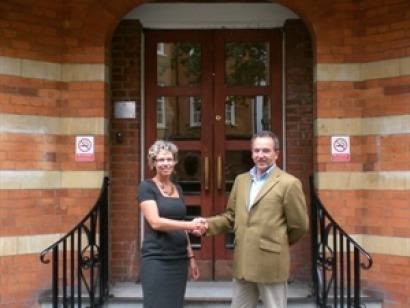
After a decisive vote by its members earlier this week, the Association for Organics Recycling (AfOR) will integrate into the Renewable Energy Association (REA). The process of combining AfOR and the REA will be completed by the end of this year and will strengthen the REA’s position as the UK’s largest trade association representing the UK renewables industry. The REA’s membership in the UK will for the first time exceed 1,000 companies and individuals.
Tuesday’s announcement will see AfOR’s Managing Director Jeremy Jacobs become the REA’s Technical Director. AfOR’s certification activities, covering compost and biodegradable packaging, will move to the REA’s wholly owned subsidiary Renewable Energy Assurance Ltd (REAL) [3]. AfOR staff and REAL have already been working together for two years on the Biofertiliser [4] and Green Gas [5] Certification Schemes. AfOR’s training programmes will continue as part of the REA’s programme of training courses for members and non-members.
In addition, AfOR’s technical enquiry service will continue as the REA Organics Recycling Group. This group will assist members with enquiries concerning quality standards for compost and digestate; the collection, treatment and use of biodegradable resources; permitting and planning; compostable packaging schemes; and any other subject relating to the treatment of biodegradable resources.
“I am absolutely delighted with this move, which will strengthen the REA’s position as the leading trade association representing the UK’s renewables industry,” REA Chairman, Martin Wright. “In particular, the scientific and technical expertise of the AfOR staff will greatly enhance the REA’s advocacy on behalf of the organic waste-to-energy sector. It also makes strategic sense to house all organics certification activity under one roof.”
The Association for Organics Recycling, set up in 1994 and numbering 300 members, is the leading trade organisation for the biodegradable waste management industry in the UK. Its members are active in composting, anaerobic and aerobic digestion, and the provision of fuels for biomass heat and power. Like the REA, the association is a not-for-profit organisation.
“We chose to merge with the REA because many of our members are increasingly active in anaerobic digestion and the supply of renewable fuels. This move will therefore bring tangible benefits to existing members of both associations. In addition, our certification activity has natural synergies with the two existing biogas certification schemes run by the REA’s subsidiary company REAL,” explains Jeremy Jacobs.
REA Chief Executive, Gaynor Hartnell, said highlighted this week that she is “determined” that the UK makes more of its organic resources, for both energy production and enhancing soil quality. “Waste management and renewable energy are entirely complementary, yet can so easily fall through the gap between different Government departments. The needs of the organics recycling sector will now form part of REA’s high level advocacy with Government. We will be pressing hard for a joined-up approach,” she said.
The news has been welcomed by key stakeholders in the UK waste and energy landscape.
“This merger should give the growing anaerobic digestion and composting industries a greater voice going into the future and help realise the Government’s ambitions to cut waste and promote sustainable energy. The REA and AfOR are two of the most respected names in the sector, by merging they are creating a ‘superbrand’ to boost green growth,” says Dr Jeremy Tomkinson, CEO of bioeconomy consultants NNFCC.
[Inset: Gaynor Hartnell and Jeremy Jacobs at REA’s new offices. Courtesy of REA]
For additional information:

